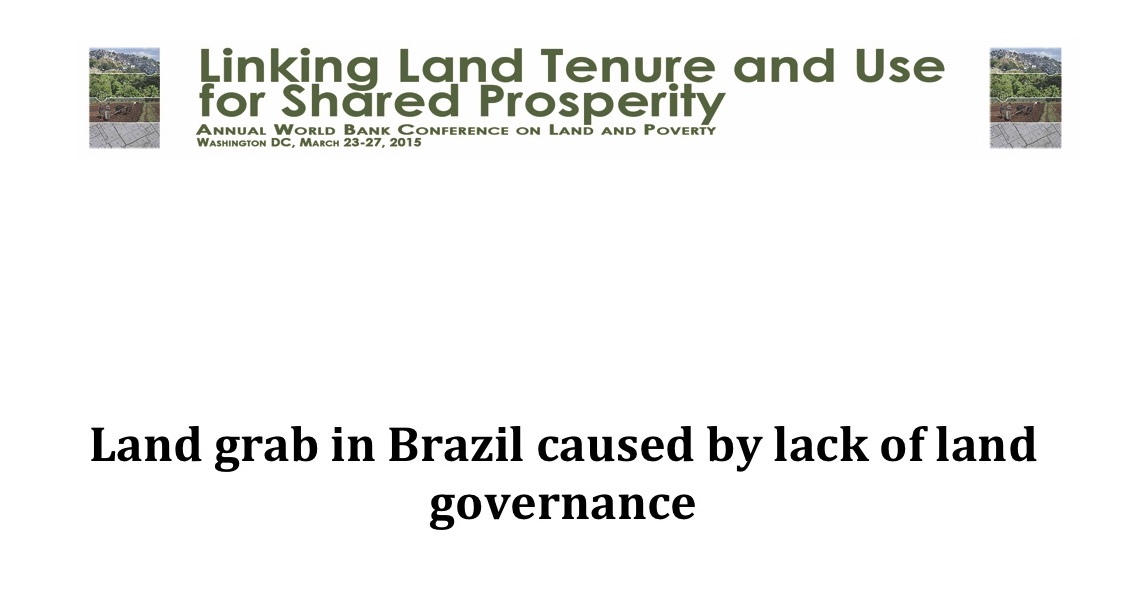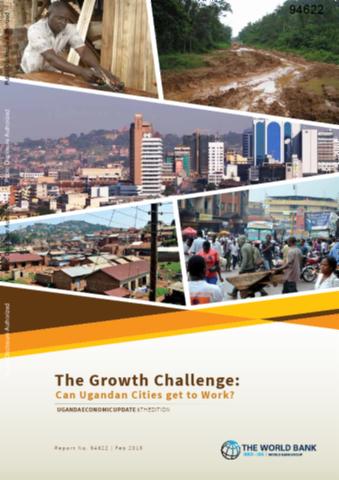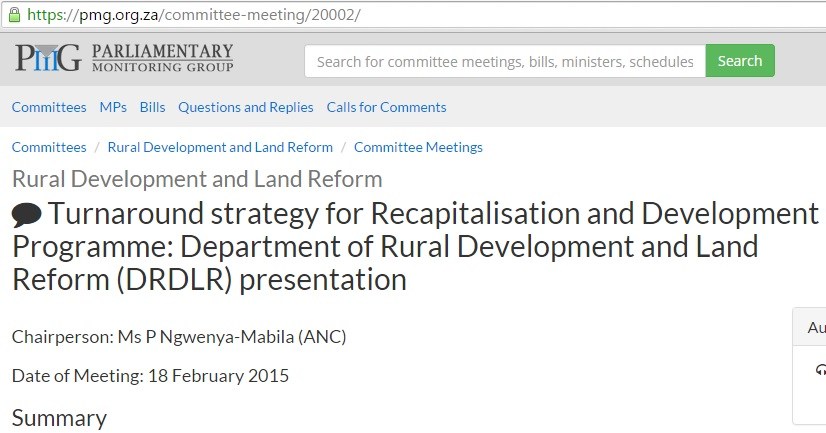Land grab in Brazil caused by lack of land governance
Brazil has the fifth-largest national land area in the world and this land resource represents a critical asset for the country’s urban, agricultural, and economic development, also providing essential environmental services. Nevertheless, it has a historical lack of governance over its lands, failing to provide secure land rights and to control the extensive frauds resulting in public and private land grabs. The objective of this study is to depict evidence of these land grabs and propose a typology for analyzing them.
Uganda Economic Update, February 2015
This Fifth Edition of the Uganda Economic Update presents evidence that if the urbanization process is well managed, it has the potential to stimulate economic growth and to provide productive jobs for a greater proportion of Uganda’s young and rapidly expanding population. In many countries across the world, the growth of cities has stimulated the establishment and expansion of productive businesses by reducing the distance between suppliers and customers. The growth of cities has also facilitated provision of social services and infrastructure through economies of scale.
Senegal Economic Update, December 2014 : Learning from the Past for a Better Future
Gross domestic product (GDP) growth was
a disappointing 3.5 percent in 2013. It remained largely
unchanged compared to 2012, reflecting a decline in cereal
production and stagnation in the industrial sector. Services
continue to drive the economy. The economic outlook for 2014
was more positive, but poor rainfall and the Ebola outbreak
have forced downward revisions in GDP growth projections,
now expected to reach 4.5 percent. The plan Senegal emergent
Enabling the Business of Agriculture 2015 : Progress Report
Enabling the Business of Agriculture
2015 is a pilot assessment report on the agribusiness sector
enabling environment in 10 countries. This progress report
covers the methodology, key insights and lessons learned
from the pilot effort. Enabling the Business of Agriculture
2015 is a first step toward identifying areas and data sets
that can be used to build indicators in subsequent phases of
the project; the indicators will measure and monitor
Outcomes, Opportunity and Development : Why Unequal Opportunities and Not Outcomes Hinder Economic Development
This paper studies the relationship
between inequality of opportunity and development outcomes
in a cross-country setting. Scholars have long debated the
impact of inequality on growth, development, and the quality
of institutions in a society. The empirical relationships
are however confounded by the notion that
"inequality" can be seen as a composite of
inequality arising from differences in effort and ability,
Producer Companies in India : Potential to Support Increased Productivity and Profitability of Poor Smallholder Farmers
In 2002, the producer company model
emerged to benefit poor farmers in India. This smart lesson,
based on the World Bank's growing experience with
producer companies in India, builds on lessons learned from
the first and second Madhya Pradesh district poverty
initiatives projects, which initiated 18 agriculture and
livestock companies, involving 46,500 poor small farmers in
over 1,550 villages in 14 districts - with 100 percent women
Capacitación agroecologíca en la frontera Colombo-Venezolana
Turnaround strategy for Recapitalisation and Development Programme: Department of Rural Development and Land Reform (DRDLR) presentation
The turnaround strategy for the Recapitalisation and Development Programme (RADP) was presented against the backdrop of the Committee’s public hearings on 4 and 5 February 2015 on the implementation of the programme. The evaluation process conducted by the Department of Performance Monitoring and Evaluation (DPME) indicated that even though RADP had made some progress towards achieving its intended objectives, there was room for significant improvement.
Georgia : Seizing the Opportunity to Prosper
Georgia: Seizing the Opportunity to
Prosper suggests a path towards sustainable and shared
growth. Georgia s story is associated with three stylized
facts: high growth with persistent unemployment currently at
nearly 15 percent after 10 years of annual growth that
averaged above 5.5 percent; a doing business rank of 8 out
of 189 countries achieved without recovery to 1990 levels of
per capita income suggesting a relatively difficult
Republic of India : Accelerating Agricultural Productivity Growth
In the past 50 years, Indian agriculture
has undergone a major transformation, from dependence on
food aid to becoming a consistent net food exporter. The
gradual reforms in the agricultural sector (following the
broader macro-reforms of the early 1990s) spurred some
unprecedented innovations and changes in the food sector
driven by private investment. These impressive achievements
must now be viewed in light of the policy and investment
Sri Lanka - Reshaping Economic Geography : Connecting People to Prosperity
Economic progress is accompanied by a
fundamental spatial transformation where the economic
landscapes of countries become increasingly uneven. The
journey from low incomes to high incomes involves rising
concentration of prosperity in a few places. Connecting
people to prosperity - is the principle behind economic
integration policies that can help countries reap the
benefits of both uneven growth and inclusive development.






